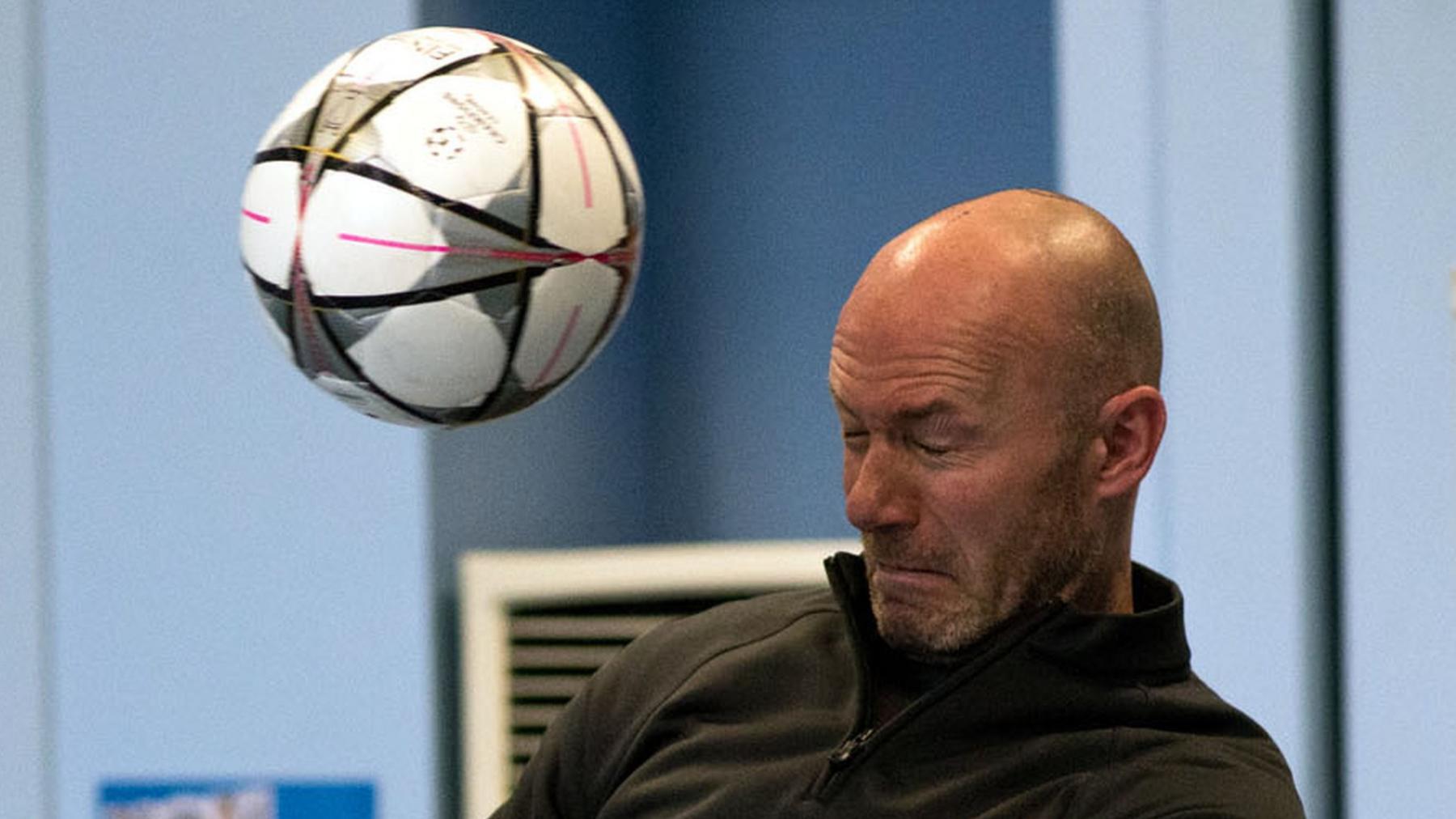Dementia and football: PFA wants heading banned for under-11 players
- Published
Dementia in football: Alan Shearer undergoes MRI scan
Children under the age of 11 should be banned from heading footballs until the long-term health risks are better understood, the Professional Footballers' Association (PFA) says.
PFA chief executive Gordon Taylor was responding to a BBC documentary in which Alan Shearer examined research linking repeated heading with dementia.
In the United States, under-11s are banned from heading,, external with limitations in place for players between 11 and 13.
Taylor said: "I would agree with that."
He added: "Heading is really being practised less and less when you see the way the game has changed. In the 1950s and 1960s when they had the old balls, when they were soaked they were particularly heavy.
"It is considered the modern ball is lighter. But in America they decided - without establishing a causal link - that youngsters up to the age of 11 shouldn't be heading the ball, particularly whilst this research is going on."
In Alan Shearer: Dementia, Football and Me, former England captain Shearer highlighted the case of Jeff Astle, the West Brom and England player who developed dementia and died in 2002 at the age of 59.
A coroner ruled he had an industrial disease and that repeated heading of a ball had made a significant contribution to the cause of death.
After the Astle inquest research was commissioned by the Football Association and the PFA but it was later dropped because of what were said to be technical flaws.
Dawn Astle quits interview with PFA chief Gordon Taylor in March
Jeff Astle's family has campaigned , externalfor the football authorities to launch a comprehensive research programme, and the PFA is now working with the FA to fund research Taylor says will be "correct, independent and and objective".
He added: "The game does owe a duty of care to all its participants.
"I don't know why [world governing body] Fifa has not addressed it. I feel they should. I don't know why [European governing body] Uefa hasn't, even though they have been lobbied.
"Within the realms of our budget we are doing the best that we can. Anybody who wishes to know what we are doing in this area is very welcome to come and go through all our files, not just for the moment but since the 1990s."
- Published12 November 2017
